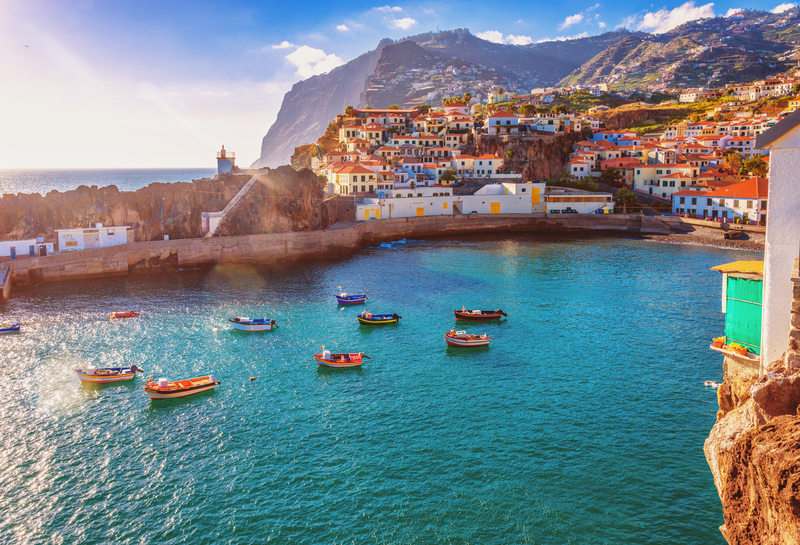Discover Portugal: The Go-To Paradise for Retirees
Portugal is renowned for its warm Mediterranean climate, historic architecture, and high quality of life, attracting retirees from around the world. The charm of cities like Lisbon and Porto blends seamlessly with the relaxed coastal lifestyle found in the Algarve.
Urban and Coastal Living:
In Lisbon, the vibrant capital, retirees can explore a rich cultural tapestry at every corner, from historic trams to modern museums. The Algarve offers a slower pace of life with its stunning beaches, quaint villages, and golf courses.
Leisure and Recreation:
Known for its golf courses, Portugal is a golfer's paradise, particularly in regions like the Algarve. The Douro Valley offers magnificent vineyards and river cruises, providing serene ways to spend retirement days.
Relaxation and Comfort:
Portugal's affordable cost of living combined with its comprehensive healthcare system ensures a comfortable and secure lifestyle for retirees. The friendly local community makes it easy for expats to feel at home.
Portugal's mix of traditional charm and modern amenities creates an ideal setting for a fulfilling andrelaxed retirement experience, surrounded by stunning landscapes and rich history.

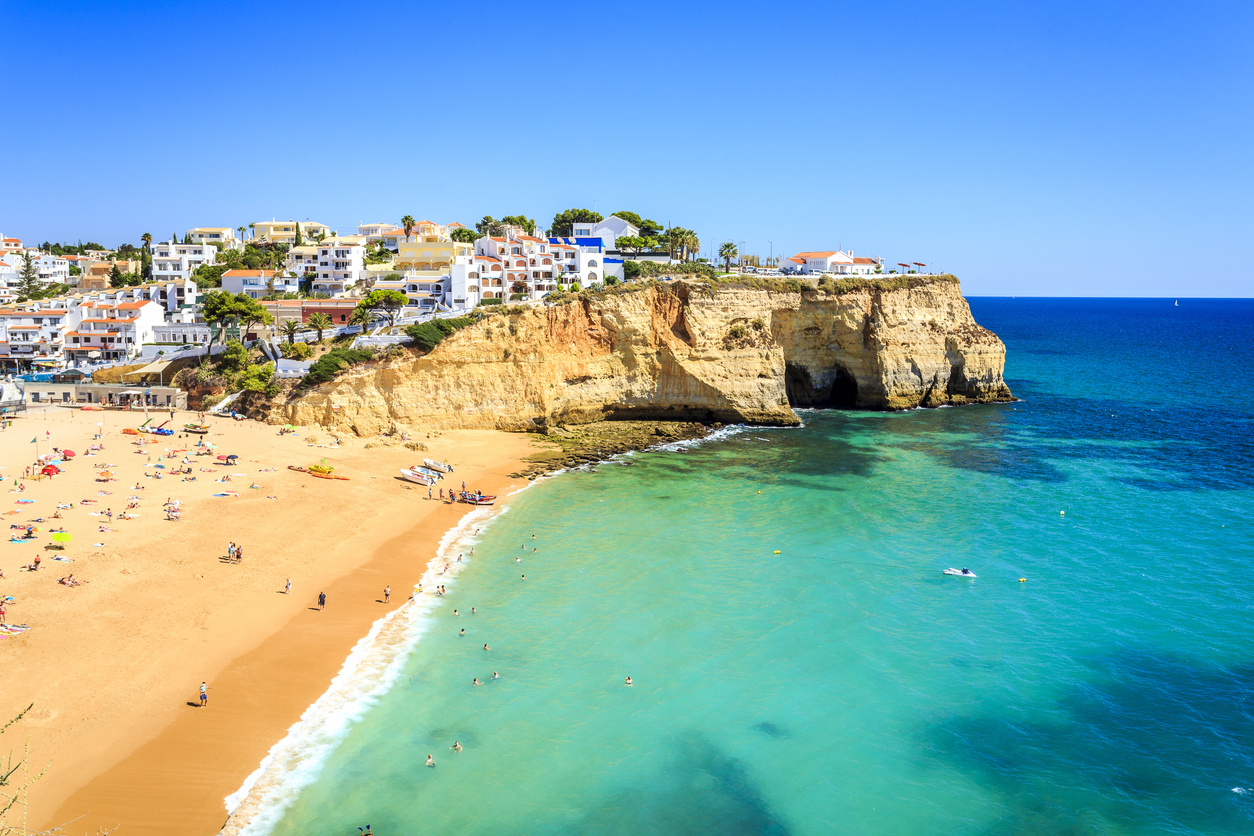
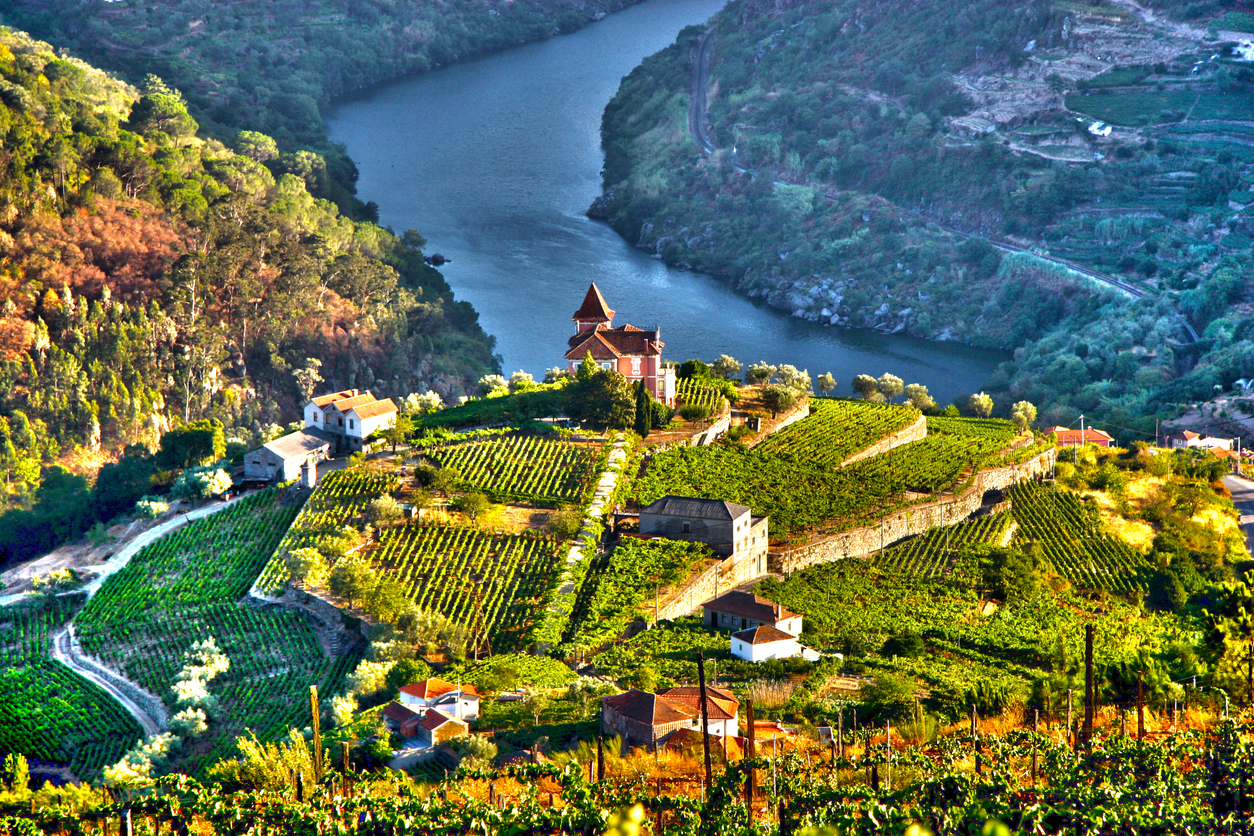
Visa Requirements
Retiring in Portugal requires obtaining a residence visa suitable for long-term stays without employment, such as the D7 Visa, known for its accessibility to retirees with a stable income. This visa is ideal for non-EU/EEA/Swiss citizens wishing to reside in Portugal.
Application Process:
- Eligibility: Applicants must demonstrate a regular passive income such as pensions, rental earnings, or investments. The minimum income requirement generally aligns with the Portuguese minimum wage.
- Documentation: Necessary documents include a passport, proof of income, proof of accommodation in Portugal, criminal record certificate, and health insurance that covers Portuguese territory.
- Consular Application: The initial visa application is submitted through the Portuguese consulate in your home country, followed by obtaining a residence permit once in Portugal.
- Fees: The application fee varies but is typically around €90 for the visa and additional costs for the residence permit.
Renewal and Permanent Residency:
The D7 Visa initially allows a stay of 2 years, which can be renewed for successive 3-year periods. After five years of legal residency, you can apply for permanent residency or citizenship.
Additional Resources:
For more detailed information and to start your application, visit the embassy of Portugal to the United States of America website. Here, you can also find specific links to download required forms and detailed instructions for your application.

Health Insurance
Portugal has a high-quality healthcare system that includes both public and private services. As a non-EU retiree planning to reside in Portugal, you are required to have health insurance coverage to obtain a residence visa.
Accessing Healthcare in Portugal:
After becoming a legal resident, you may access Portugal's National Health Service (Serviço Nacional de Saúde - SNS), which provides low-cost healthcare services. However, there can be waiting times for certain procedures and language barriers in some areas.
Choosing the Right Insurance:
To meet visa requirements and ensure comprehensive coverage, it is recommended to have private health insurance. Private insurance offers shorter waiting times, access to private hospitals and clinics, and English-speaking medical staff. International insurers that offer plans suitable for expatriates in Portugal include:
Alternatively, Portuguese insurance companies such as Fidelidade and MGEN offer local health insurance plans.
When selecting a health insurance plan, ensure it covers hospitalization, emergency services, and routine medical care. Having private health insurance provides peace of mind and greater flexibility in accessing healthcare services.
Cost of Living
The cost of living in Portugal is relatively affordable compared to other Western European countries, making it an attractive destination for retirees. Here's a breakdown of typical expenses:
Housing:
Rental prices in Portugal can vary widely depending on the location. For example, in Lisbon, you might expect to pay around €1,000 per month for a one-bedroom apartment in the city center, while in smaller towns or rural areas, prices can be significantly lower.
Groceries and Dining Out:
The cost of groceries in Portugal is reasonable, and dining out is quite affordable compared to other European countries. A meal at an inexpensive restaurant can cost around €8-€15 per person.
Healthcare:
Healthcare in Portugal is known for its high quality and relatively low cost. Residents can access public healthcare services at reduced rates, and private health insurance is also available at reasonable prices.
Transportation:
Public transportation is widely available and economical. A monthly pass for local transit typically costs around €40. If you prefer to drive, fuel prices are in line with the European average.
Leisure and Entertainment:
Portugal offers a wide range of affordable leisure activities, from golf courses and beach clubs in the Algarve to cultural events and museums across the country. Entry fees for museums and historical sites are generally under €10.
Population
Portugal has a population of approximately 10 million people, offering a harmonious blend of bustling urban centers and tranquil rural areas. The country's population density is higher along the coastal regions and major cities, with Lisbon, the capital, and Porto being the most populous. These cities are rich in history, culture, and provide modern amenities, making them attractive destinations for retirees seeking an active urban lifestyle with access to high-quality healthcare, entertainment, and dining options.
In contrast, areas like the Algarve and Madeira Island offer lower population densities and a more relaxed atmosphere. The Algarve, renowned for its stunning beaches, warm climate, and picturesque towns, has become a popular retirement destination for both locals and expatriates. It hosts a sizable international community, providing a welcoming environment for retirees from abroad. Portugal's overall aging population and friendly attitude towards seniors contribute to a society that values and supports the needs of retirees. Whether you prefer the vibrancy of city life or the peace of coastal living, Portugal's diverse regions cater to a variety of lifestyle preferences for retirees
Transportation
Traveling to Portugal from US/Canada
Direct flights from the US and Canada to Portugal make it convenient for retirees to travel between these countries. Major airlines operate frequent flights to cities like Lisbon, Porto, and Faro. Check the links below for more details on airlines and flight frequency:
- TAP Air Portugal - Connects various US locations, including New York, Miami, Boston, Washington, and Chicago directly with Lisbon and Porto.
- American Airlines - Offers direct flights from major US cities to Lisbon.
- Air Canada - Provides direct services from cities like Toronto and Montreal to Lisbon.
Exploring Portugal and Beyond
Portugal boasts an extensive travel infrastructure, facilitating easy exploration across the country and to neighboring European nations. The integrated network of air, train, and bus services offers seamless travel possibilities:
- Air Travel: Domestic flights connect major cities and tourist destinations within Portugal swiftly. For more information, visit ANA Aeroportos de Portugal.
- Train Travel: Comboios de Portugal (CP), the national railway, offers train services connecting major cities in hours. The scenic routes are an added bonus. For more information on schedules and tickets, visit CP's official website.
- Bus Travel: Extensive bus networks cover even the most remote areas, offering an economical way to travel.
Activities for Retirees in Portugal
Portugal offers a diverse range of activities ideal for retirees, including visits to beautiful marinas, golfing at renowned courses, indulging in delicious cuisine, exploring museums, enjoying cruises, and participating in cultural events.
Marinas and Cruises
Experience the tranquility of Portugal's marinas or embark on a relaxing cruise along the Atlantic coast. Popular marinas such as Marina de Cascais and Marina de Lagos are known for their excellent facilities and vibrant local scenes. More information can be found on their respective websites: Marina de Cascais and Marina de Lagos.
Golf Courses
Portugal is famous for its exceptional golf courses, particularly in the Algarve and Lisbon areas. These regions offer picturesque courses and a favorable climate for golfing. Learn more about specific courses at Top 100 Golf Courses.
Food and Restaurants
Portugal's culinary scene is rich and diverse, featuring everything from traditional Portuguese dishes to Michelin-starred dining experiences. Discover more about the top restaurants in Portugal at Michelin Guide Portugal.
Museums and Cultural Sites
Explore Portugal's deep history and culture through its many museums. The National Museum of Ancient Art in Lisbon and the Serralves Museum in Porto are must-visits for art enthusiasts. For more information, visit their websites: National Museum of Ancient Art and Serralves Museum.
Events and Festivals
Engage in local culture through various festivals and events that cater to a more mature audience. Enjoy classical music concerts, wine festivals, and other cultural events that celebrate Portugal's traditions and lifestyle. For more information on events, visit Visit Portugal Events.
Safety
Portugal is considered one of the safest countries in the world, boasting a high quality of life and low crime rates. Its welcoming atmosphere, political stability, and efficient law enforcement make it an attractive destination for retirees seeking peace of mind.
General Safety Overview
The most common crimes in Portugal are non-violent, such as pickpocketing and petty theft, especially in tourist areas, crowded streets, and public transportation hubs. Violent crime is rare but can occur in larger cities like Lisbon and Porto, typically in specific neighborhoods.
Comparison with Other Countries
According to the Global Peace Index, Portugal consistently ranks among the top safest countries globally, often within the top 5. It ranks higher than many other European nations and significantly higher than the United States in terms of safety and peacefulness. This high ranking reflects Portugal's low crime rates, minimal internal conflicts, and stable political environment.
Recommendations for Retirees
To enhance safety and ensure a comfortable retirement experience, consider the following tips:
- Choose Safe Neighborhoods: In Lisbon, neighborhoods like Chiado, Baixa, and Parque das Nações are known for their safety and amenities. In the Algarve, towns such as Lagos, Tavira, and Vilamoura are popular among retirees for their tranquility and community atmosphere.
- Stay Vigilant: Be cautious in crowded areas and tourist hotspots. Keep personal belongings secure, use anti-theft bags, and avoid displaying valuables openly.
- Secure Your Home: Ensure your residence has adequate security measures, such as reliable locks and possibly an alarm system. Consider properties in gated communities or with on-site security, which are common in popular expatriate areas.
- Engage with the Community: Building relationships with neighbors and participating in local activities can enhance your support network and contribute to a sense of belonging.
- Emergency Services: Familiarize yourself with local emergency numbers. Dial 112 for police, medical emergencies, and fire services. This is the universal emergency number throughout the European Union.
- Stay Informed: Keep up-to-date with local news and any advisories. Be aware of public holidays, festivals, or demonstrations that may affect transportation or public services.
Terrorism and Public Safety
Portugal has a low threat level regarding terrorism and has not been a significant target in recent history. The government remains vigilant and maintains effective security measures. Standard precautions are advised when attending large public gatherings or events.
Healthcare and Safety
Access to quality healthcare contributes to overall safety and well-being. Portugal's healthcare system is highly regarded, with both public and private options offering reliable and efficient services. Emergency medical care can be accessed by dialing 112, and hospitals are well-equipped to handle emergencies.
Natural Disasters
Portugal faces minimal risk from natural disasters. However, certain regions may experience occasional events:
- Wildfires: During the dry summer months, rural and forested areas can be susceptible to wildfires. It's advisable to stay informed about local conditions and adhere to any fire safety regulations.
- Seismic Activity: Portugal is located near tectonic plates, and mild earthquakes can occur, particularly in the Azores. Buildings are constructed to withstand such activity, and the risk remains low.
- Flooding: Heavy rains can lead to localized flooding in some areas. Monitoring weather reports during the rainy season is recommended.
Conclusion
Portugal offers a safe, peaceful, and welcoming environment for retirees. By taking standard safety precautions and choosing to reside in secure and friendly neighborhoods, retirees can fully enjoy the rich culture, favorable climate, and relaxed lifestyle that Portugal provides with confidence and peace of mind.
Main Locations
Algarve
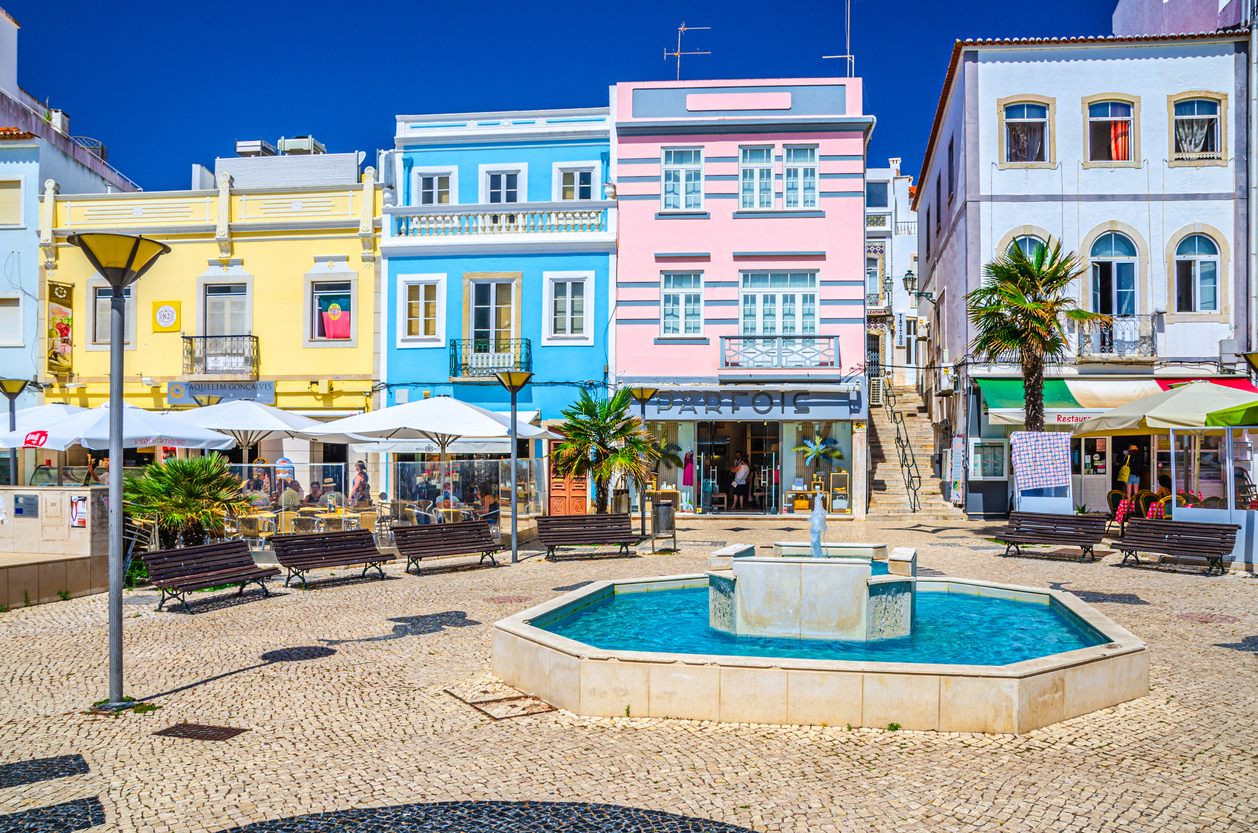
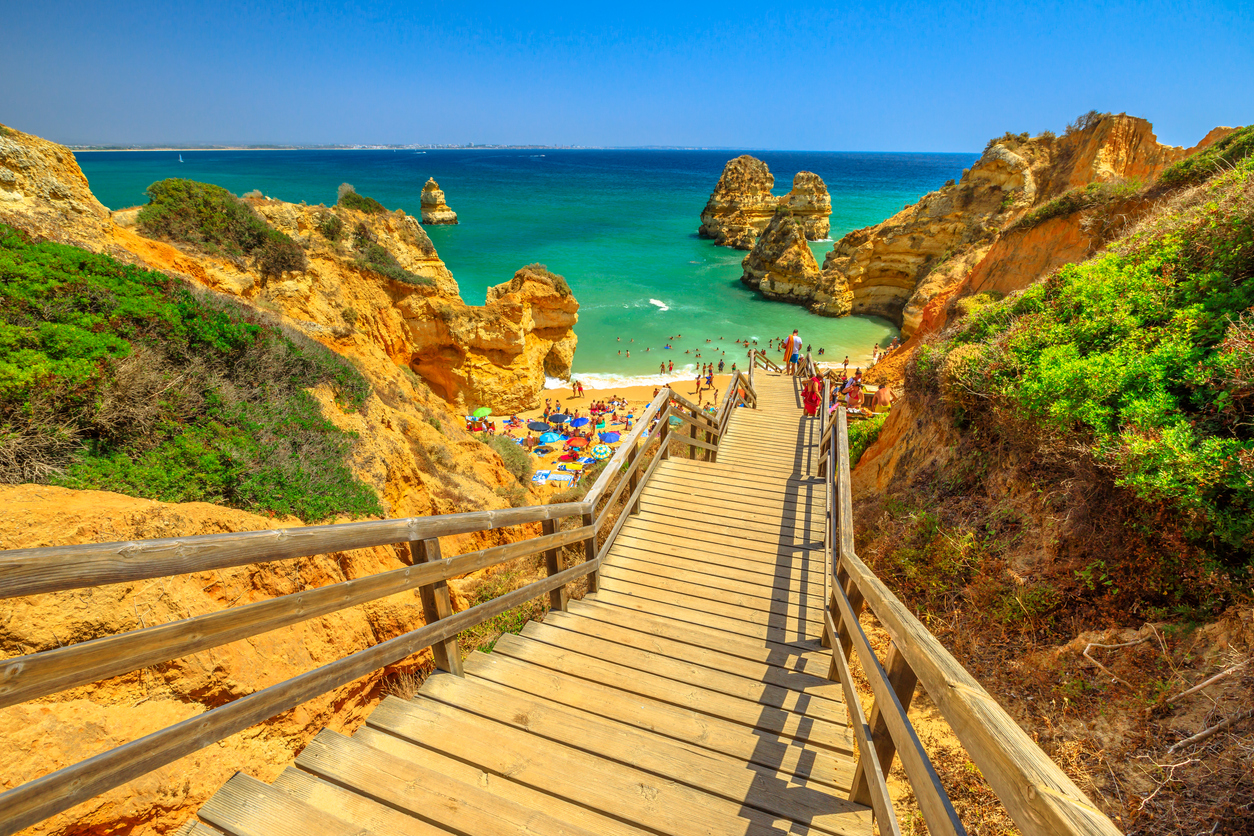
Climate
The Algarve region enjoys a Mediterranean climate with hot, dry summers and mild winters. The average annual temperature is around 18-20°C (64-68°F), making it ideal for retirees seeking warm weather year-round.
Healthcare
Algarve offers excellent healthcare facilities, including both public and private hospitals. Many healthcare providers in the region cater to expatriates, with English-speaking staff available. Major hospitals include Hospital de Faro and Hospital Lusíadas Albufeira.
Main Towns
-
Faro
- Pros: Rich cultural heritage, beautiful natural parks, and excellent healthcare facilities. Faro is known for its charming old town and coastal access.
- Cons: Busier during the tourist season.
-
Albufeira
- Pros: Vibrant atmosphere, beautiful beaches, and numerous restaurants and amenities. Popular with expats and retirees.
- Cons: Can be crowded and noisy, especially in the summer.
-
Lagos
- Pros: Stunning coastline, relaxed atmosphere, and a charming old town. Lagos offers a good balance of modern amenities and traditional charm.
- Cons: Smaller than Faro and Albufeira, with fewer services.
Summary
The Algarve is a popular destination for retirees due to its pleasant climate, excellent healthcare, and beautiful coastal towns. Faro and Lagos offer a more relaxed environment, while Albufeira is lively and vibrant, especially during the summer months.
Lisbon
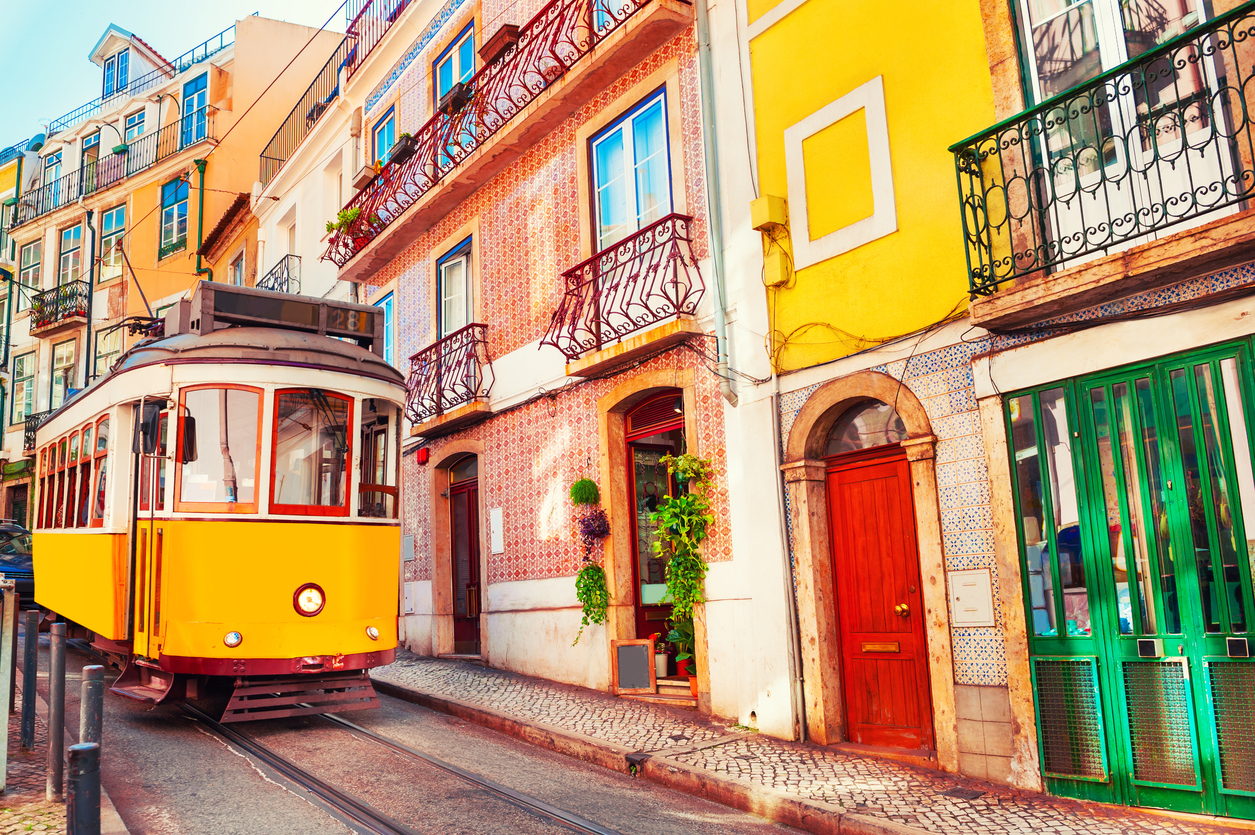
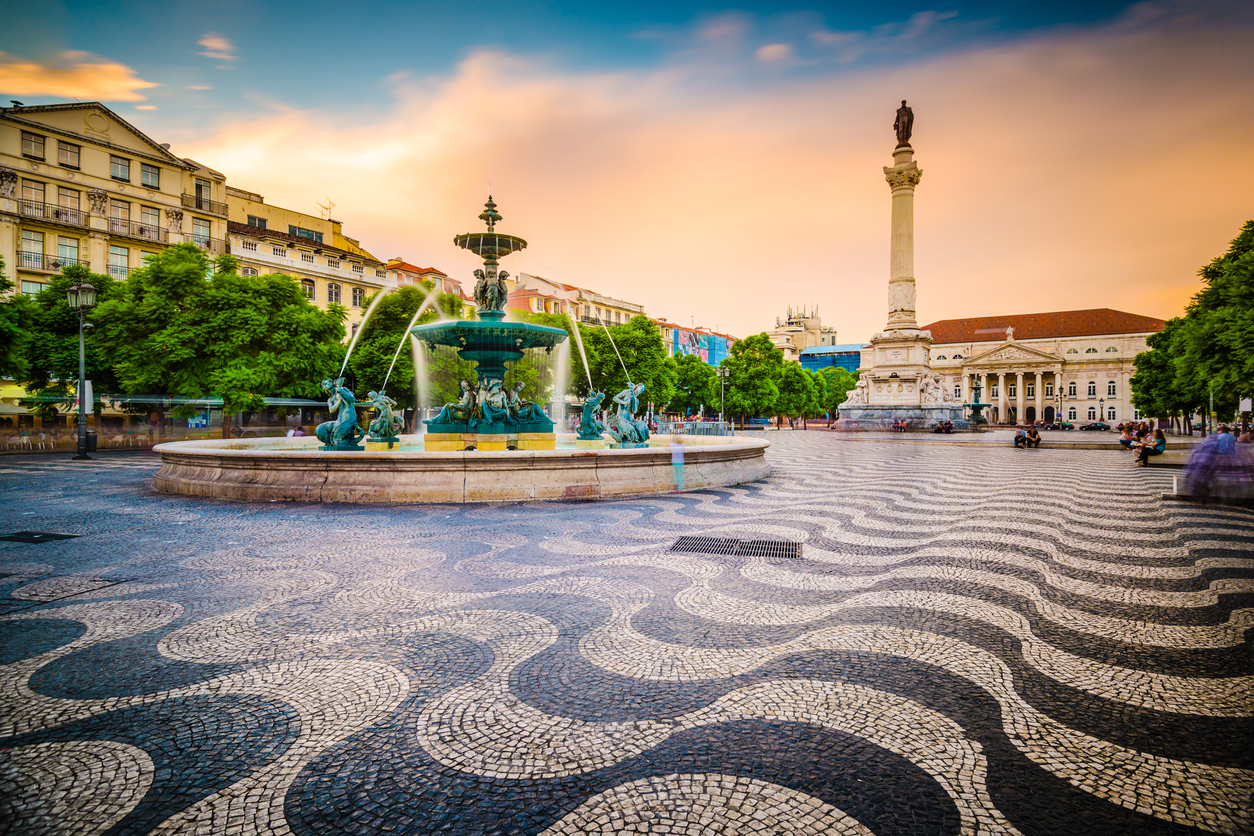
Climate
Lisbon enjoys a Mediterranean climate with mild, rainy winters and warm, dry summers. The average annual temperature is around 17°C (63°F), making it comfortable year-round.
Healthcare
Lisbon has some of the best healthcare facilities in Portugal, with a mix of public and private hospitals. Major hospitals include Hospital de Santa Maria and CUF Infante Santo Hospital, both offering high-quality care.
Main Neighborhoods
-
Cascais
- Pros: Beautiful coastal town with a relaxed atmosphere, great amenities, and proximity to Lisbon. Popular among expats and retirees.
- Cons: Higher cost of living compared to other Lisbon neighborhoods.
-
Estoril
- Pros: Known for its stunning coastline, golf courses, and quality of life. Estoril offers a quiet but well-connected environment.
- Cons: Limited nightlife and higher housing prices.
-
Alfama
- Pros: Historic charm, traditional Fado music, and a rich cultural atmosphere. Alfama is ideal for those seeking a deep connection to Portuguese culture.
- Cons: Narrow streets and many stairs, which may be challenging for those with mobility issues.
Summary
Lisbon provides a mix of urban and coastal living, making it a great choice for retirees who enjoy city amenities along with access to the ocean. Cascais and Estoril are popular for their seaside beauty, while Alfama offers a traditional experience with a rich cultural heritage.
Madeira
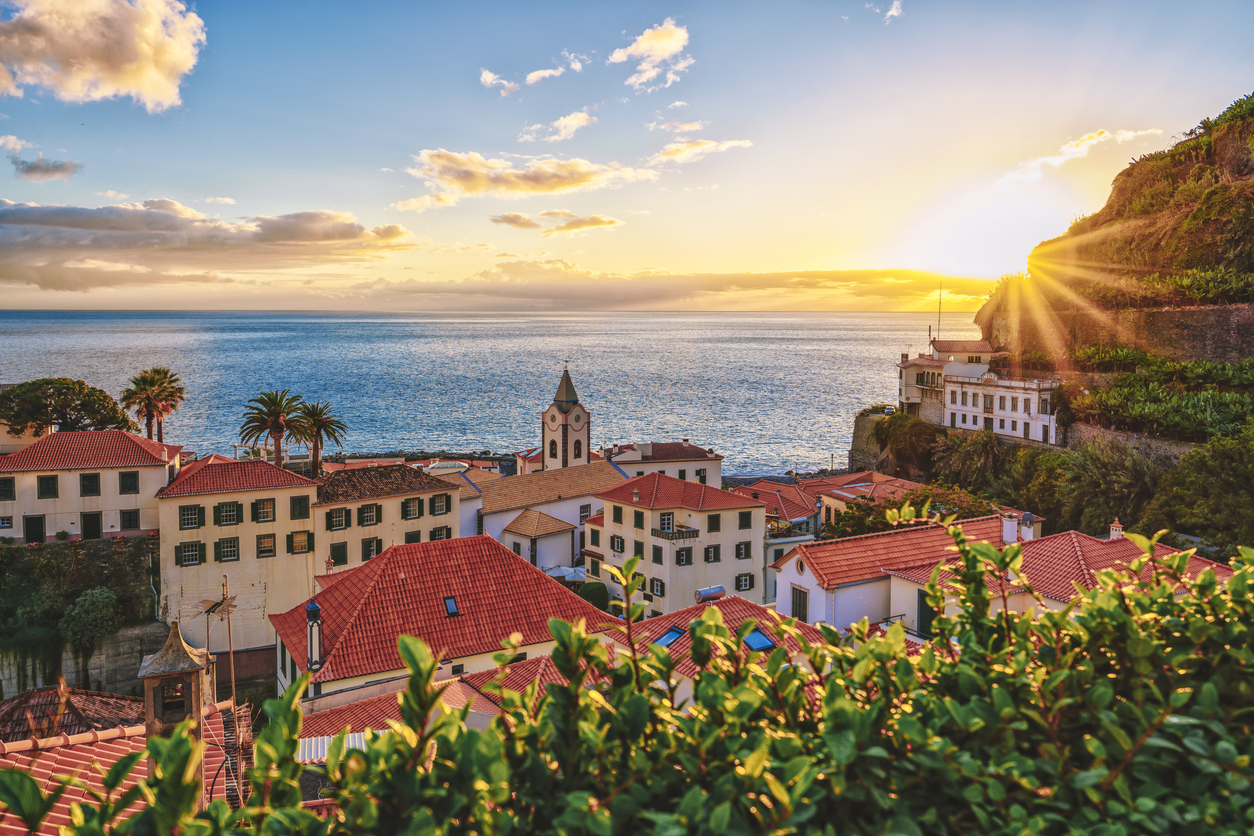
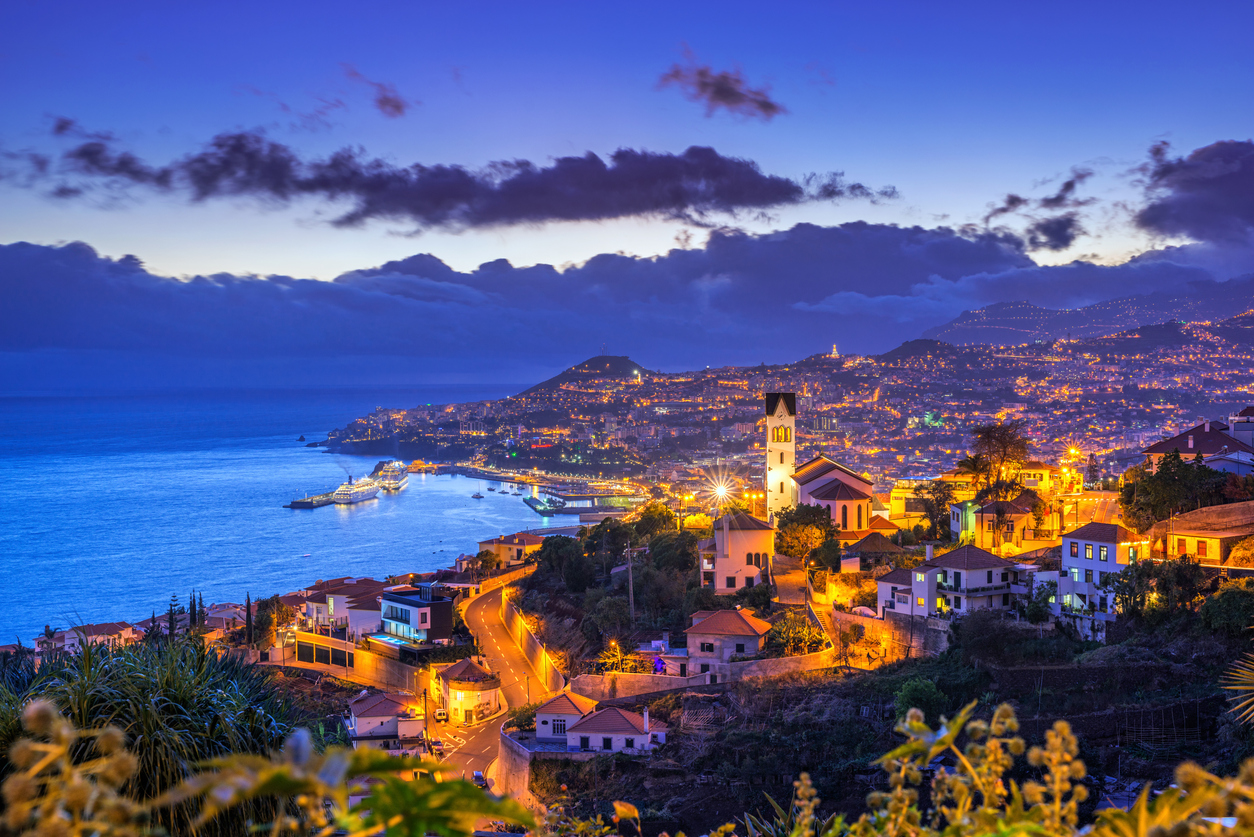
Climate
Madeira enjoys a subtropical climate, with mild temperatures throughout the year. The average annual temperature is around 19°C (66°F), making it ideal for retirees looking for a comfortable climate.
Healthcare
Madeira has good healthcare facilities, with both public and private hospitals. Funchal, the capital, is home to Hospital Dr. Nélio Mendonça, which provides a wide range of medical services.
Main Towns
-
Funchal
- Pros: Lively city with beautiful views, excellent healthcare, and many cultural attractions. Funchal is a popular base for retirees looking to explore the island.
- Cons: Hilly terrain may be challenging for those with mobility issues.
-
Machico
- Pros: Coastal town with a relaxed atmosphere, beautiful beaches, and affordable living. Machico offers a quieter lifestyle compared to Funchal.
- Cons: Fewer amenities compared to Funchal.
-
Calheta
- Pros: Known for its man-made sandy beach, beautiful marina, and relaxed atmosphere. Calheta is ideal for those seeking tranquility.
- Cons: Limited nightlife and fewer amenities.
Summary
Madeira offers a subtropical paradise for retirees looking for a peaceful lifestyle. Funchal provides a vibrant environment with excellent amenities, while Machico and Calheta offer quieter, more relaxed alternatives.

